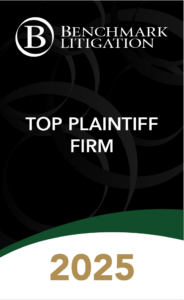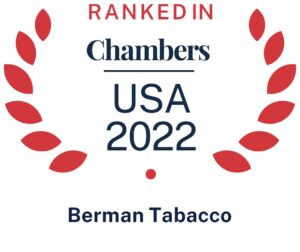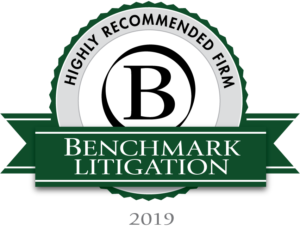Recently, San Francisco Associate Christina M. Sarraf and Boston Associate Solal Wanstok presented a continuing legal education program to the firm discussing piercing the corporate veil, a rarely employed but important legal concept in corporate fraud litigation. We sat down with Sol to talk about the issues.
Sol joined Berman Tabacco in the Fall of 2024 and focuses on securities litigation and shareholder rights and corporate governance matters. Prior to joining the firm, he worked primarily on shareholder disputes and employment matters. He is a graduate of New York University (B.A., Environmental Studies and Economics), Vermont Law School and CY Cergy Paris University.
BERMAN TABACCO (BT): What does it mean to “pierce” the corporate veil?
SOLAL WANSTOK: Piercing the corporate veil occurs when a court disregards the legal separation between a corporation or LLC and its owners, shareholders, or members, holding those individuals personally liable for the company’s debts or obligations. In doing so, the court allows creditors to reach personal assets that would normally be shielded by the corporate structure.
BT: What are the usual limits on liability for corporate actors?
SOLAL WANSTOK: Generally, shareholders, directors and officers are not personally liable for a corporation’s debts, liabilities or obligations. The corporation is a separate entity under the law—it can own property, enter contracts, and incur debts all in its own name, independent of its shareholders or management.
BT: Is it rare to pierce the corporate veil?
SOLAL WANSTOK: Yes. Courts are sensitive to the benefits of the corporate structure and policies that promote entrepreneurship, investment, and business development and, thus, they do not pierce the corporate veil in most instances. That said, courts do not want individuals abusing the corporate form to engage in fraud and evade their legal responsibilities.
BT: What factors will a court look for in deciding whether to pierce the corporate veil?
SOLAL WANSTOK: The inquiry is very fact-intensive and, therefore, unpredictable. Key core factors, include:
- Is the corporation merely an alter ego of its owners?
- Is there evidence of fraud, illegality, or injustice?
- Is the corporate form being used to evade legal obligations or to perpetrate fraud?
- Is the corporation under-capitalized?
- Does the company ignore corporate formalities (such as meetings and minutes)?
- Is there commingling or siphoning of company funds with those of the owners or directors?
For example, if an individual forms a shell corporation to enter contracts they have no intention of honoring and then tries to use the corporation to avoid personal liability, a court may pierce the veil and hold that individual personally liable. Ultimately, if the corporation is a mere façade for a dominant shareholder or small group of shareholders, a court is more likely to pierce the veil. Thus, single-member LLCs are more susceptible to veil piercing, while you would almost never see it with a legitimate public company.
BT: When can a plaintiff seek to “pierce” the veil? Early in the litigation? After a judgment?
SOLAL WANSTOK: Both. Early and often, as they say. A plaintiff can plead corporate veil piercing in an initial or amended complaint, seek to amend judgment to add a judgment debtor, or initiate a new case in a post-judgment action. Sometimes, the plaintiff wins a judgment and, while trying to collect, finds that the defendant company has no assets or is defunct. Other times, the plaintiff alleges veil piercing in the complaint as part of a claim, especially if there is evidence of fraud, undercapitalization, or misuse of the corporate form at the outset of the litigation. The court may then allow the veil piercing issue to proceed in tandem with the underlying claims. However, courts will typically require strong factual support early on, or else they may dismiss the veil piercing claims as premature or speculative. Therefore, plaintiff attorneys must focus their discovery efforts to support their allegations that the company is a mere front for the underlying actor or actors.
BT: Any examples of cases where piercing worked?
SOLAL WANSTOK: Yes. For instance, a federal court in Massachusetts recently pierced the corporate veil in a dispute between a medical device company and an LLC owned by one of its former sales representatives. The company sued for breach of a non-compete provision found in a distributorship agreement with the LLC. The former sales rep had formed the LLC to sign the distributorship agreement with his former employer, but failed to observe basic corporate formalities—there was no operating agreement, no board minutes, minimal capitalization, and personal and business funds were commingled. As a result, the court held the individual personally liable for the LLC’s breach.
BT: Do the standards very by state?
SOLAL WANSTOK: Typically the law of the state where the entity is incorporated governs the veil-piercing analysis. The core legal principles are broadly similar across U.S. jurisdictions, although each state has its own formulation of the doctrine, and courts may differ in how strictly they apply the factors or what kind of misconduct is sufficient to pierce the veil. Delaware, with the most developed corporate law, sets a high bar and is reluctant to pierce the veil. Other states that make veil piercing especially difficult include Nevada, Wyoming, South Dakota, Florida, and Utah.
BT: Are there “plaintiff-friendly” states?
SOLAL WANSTOK: While veil piercing is never easy, some jurisdictions—such as California, New York, and certain southern states—have developed case law that can be more favorable to creditors, especially in situations involving undercapitalization, commingling, or fraud.
BT: Is this the same as holding a parent liable for the actions of its subsidiary?
SOLAL WANSTOK: No. Veil piercing and parent-subsidiary liability are related but distinct legal concepts. Veil piercing generally targets individual owners or managers. That said, similar principles apply when assessing whether a parent company can be liable for its subsidiary’s conduct, including: whether a parent company exercises complete control over a subsidiary, whether the subsidiary is a “mere instrumentality” of the parent, and when the two entities share boards, employees, or bank accounts.
BT: What about “reverse piercing”?
SOLAL WANSTOK: Reverse piercing is a less common but important variant of the traditional veil-piercing doctrine. Instead of holding an individual liable for an entity’s debts, reverse piercing allows the creditor of an individual to reach the assets of the entity they control, by arguing that the entity is essentially the individual’s alter ego. Suppose an individual defendant owes a large personal judgment but hides his wealth in an LLC that owns luxury property. If he commingles funds and treats the LLC as his personal asset vault, a court might apply reverse veil piercing and allow the creditor to reach those assets. So, it is just the opposite of veil piercing. Many courts are skeptical of reverse veil piercing. While some states recognize the doctrine, others explicitly reject it or limit it to exceptional cases.




















